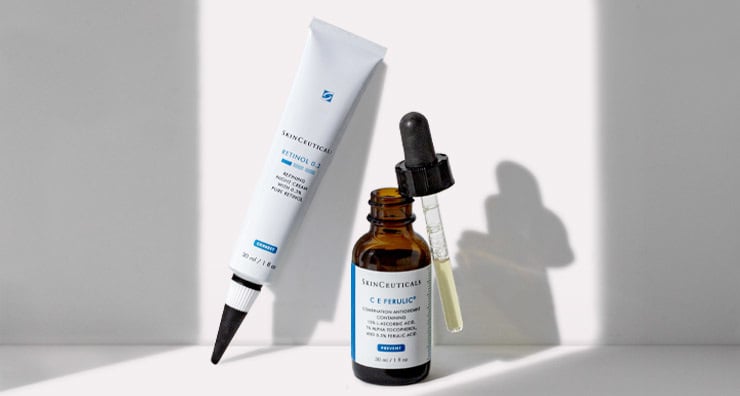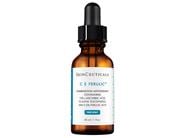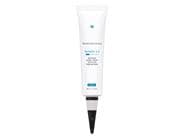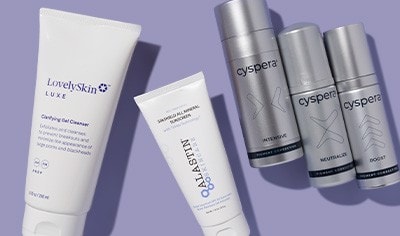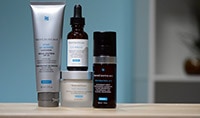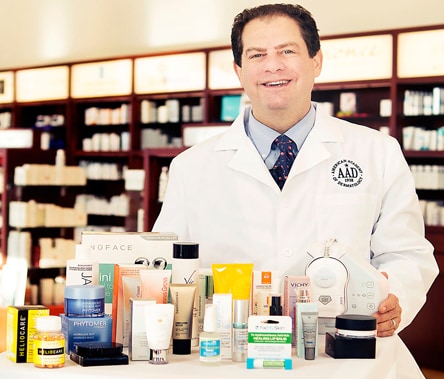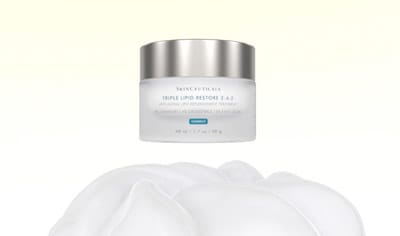Skin Care
Can you use vitamin C and retinol together?
by Aaron|November 10, 2023
The experts at LovelySkin have partnered with SkinCeuticals to share the latest skin care intel. Of all the dermatologist-recommended ingredients out there, retinol and vitamin C continue to top the list when it comes to improving the appearance of skin. However, effectively using vitamin C and retinol and getting the best possible results requires careful planning when it comes to application—simply slathering them on at any and all times is not the best move. Let’s dig into some of the most frequently asked questions about using retinol and vitamin C, including:
Let’s start with a few basic facts about these ingredients. Vitamin C is primarily used as an antioxidant that helps shield the skin from damaging free radicals encountered throughout the day while brightening skin and providing other anti-aging skin care benefits along the way. Retinol promotes skin cell turnover, which helps keep fresh, healthy cells on the skin’s surface and improve the appearance of visible signs of aging as well as blemishes.
Retinol and vitamin C are often recommended as part of a comprehensive skin care routine. That said, can you use retinol and vitamin C together—as in, should you mix them together or apply them at the same time?
“I recommend using vitamin C and retinol products from the same company because the makers are aware they could be used alongside one another,” says board-certified dermatologist and LovelySkin CEO Dr. Joel Schlessinger. “Though retinol and vitamin C don’t lose effectiveness when used together, it’s possible they could cause skin irritation. You can give it a try, but if your skin has a reaction, it’s time to consider applying them separately.”
What time of day should you be applying vitamin C and retinol? Because retinol has been linked to sun sensitivity, it’s often recommended for nighttime use. “Retinol and Retin-A are definitely nighttime products,” Dr. Schlessinger says. “Other products can vary in their time scheme. Having said this, many times my patients use vitamin C in the morning and retinol at night.”
SkinCeuticals has performed more than two decades of research on vitamin C and has carefully formulated its retinol serums to provide optimal improvement for fine lines and wrinkles, discoloration, blemishes and visible pores while minimizing irritation—and the brand adheres to the a.m./p.m. approach, which lets retinol and vitamin C do their jobs independently in the morning and evening, respectively.
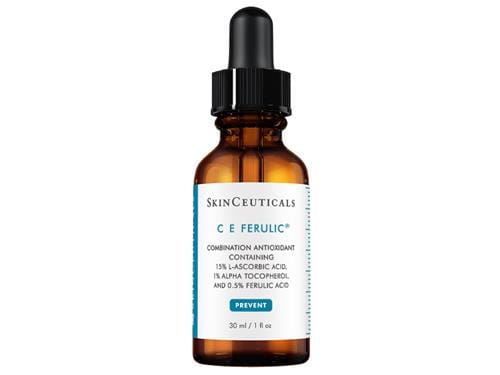
SkinCeuticals CE Ferulic Antioxidant Serum is one of the brand’s top vitamin C serums. Applying CE Ferulic in the morning provides a high level of protection against the environmental free radicals generated by UV rays, infrared-A (IR-A) rays, ozone pollution and diesel exhaust that contribute to premature fine lines and wrinkles, discoloration and loss of firmness—while actually improving these visible signs of aging as well.
You can use both retinol and SkinCeuticals CE Ferulic, but remember, retinol is a nighttime ingredient. We recommend incorporating it into your evening lineup.
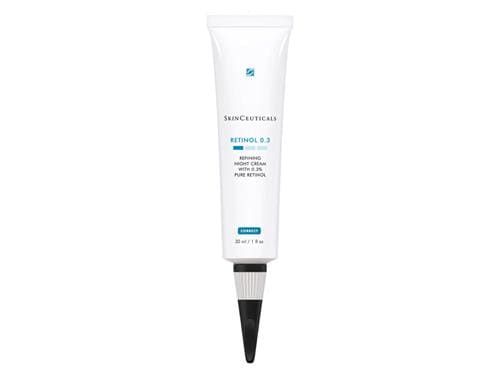
SkinCeuticals Retinol 0.3 is ideal for those just starting to introduce retinol into their routine. Featuring the latest stabilization and delivery technologies to ensure optimal benefits with minimal irritation, this concentration helps condition the skin before stepping up to the 0.5% or 1.0% concentration. Among its benefits are improvement in the appearance of fine lines and wrinkles, discoloration, visible pores and blemishes.
Using vitamin C and retinol at the right times of day is what ultimately allows these ingredients to be friends rather than foes and is key for obtaining the best possible results these ingredients can provide with minimal irritation. Be sure to allow at least four weeks to see improvement, and at that point, you’re likely to see the fruits of your skin care efforts.
Are you looking for more skin-improving tips? You can learn more about how to address aging around the eyes with SkinCeuticals products on the LovelySkin Blog.


